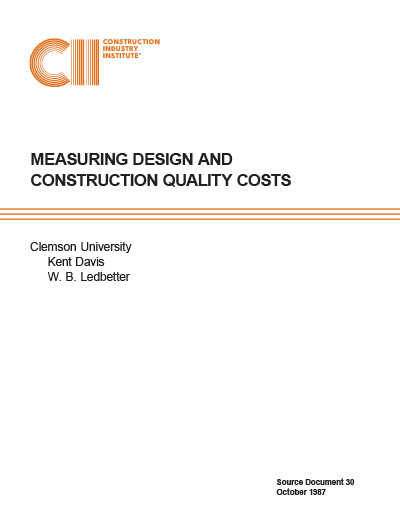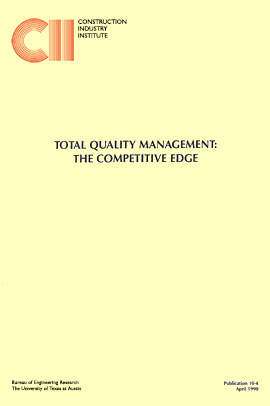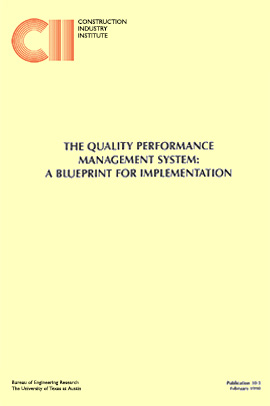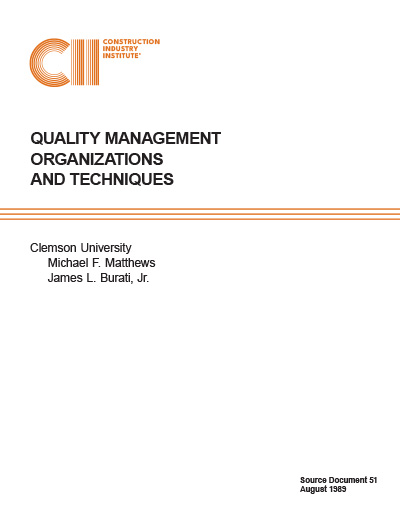
Measuring Design and Construction Quality Cost
Several troublesome challenges face the U.S. construction industry: productivity is down, litigation is up, delays are common and expensive, foreign firms are taking a greater share of the market. One important common factor is quality, or rather the lack of it, and its associated costs.
To capture many of the important quality costs involved in design and construction, a preliminary quality performance tracking system (QPTS) has been developed. The QPTS is based on the concept of quality costs as developed in the manufacturing industry, and is designed to be compatible with quality management (QM) practices and cost and schedule systems used in the construction industry.
Quality is defined as conformance to requirements (not a degree of goodness). It is important that the requirements are clearly specified. To properly identify the costs of quality, cost and schedule systems are necessary.
The goal is to minimize the cost of quality and maximize the return on investment. Quality costs do not include the cost of doing things right. Rather, they include the costs of QM (prevention and appraisal costs) and the costs of deviations (which include rework, impact, litigation and warranty costs). The cost-effectiveness of the construction industry will be boosted by the elimination of recurring quality problems, identified by the use of the QPTS for design, construction and start-up.
Eleven design and 15 construction QM activities have been identified for cost tracking. Twenty-three deviation categories have been identified by Cause (owner, designer, vendor, transportation, constructor, other), Type (error, omission, change) and Time of Detection (design, construction, startup). Deviation costs tracked by the QPTS are limited to rework costs. It has been shown that codes can be assigned to QM activities and deviation rework categories and integrated into existing cost coding systems.
The QPTS has been introduced for field trial on five projects. Evaluation, based on early feedback, indicates that the QPTS can capture useful quality cost information in terms of project elements (particular tasks), QM activities, and deviation categories.
Increased cost-effectiveness in the construction industry will be realized through the optimization of the costs of quality as part of the project management systems aimed at managing cost, schedule and quality.



